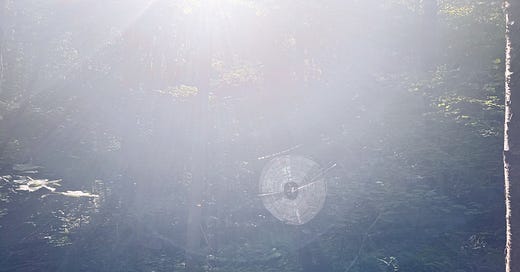Last week I drank Ayahuasca for the first time. Two ceremonies back-to-back in a retreat setting that was five days total.
I’ve been writing and re-writing that opening, trying to wade into it gently; but each of those attempts felt hand-wavy and flaccid and distracted from the sheer point of saying it without qualifying it, defending it, couching it.
Obviously, this is a risky thing for me to share, which is part of the point: On my way to deciding whether or not to try it (a many years-long process, (which you can read some about here), I consulted with a number of people in recovery; enough of them had used Ayahuasca (a form of DMT) or similar compounds, and very few had ever disclosed it, and I sat on this for five days before sending it to make sure I was ready to discuss (I am).
It’s not the first time I’ve used psychedelics in recovery (which I’ve acknowledged a few times in this newsletter but never directly discussed). I tried psilocybin (for the purpose of relieving/lessening …



